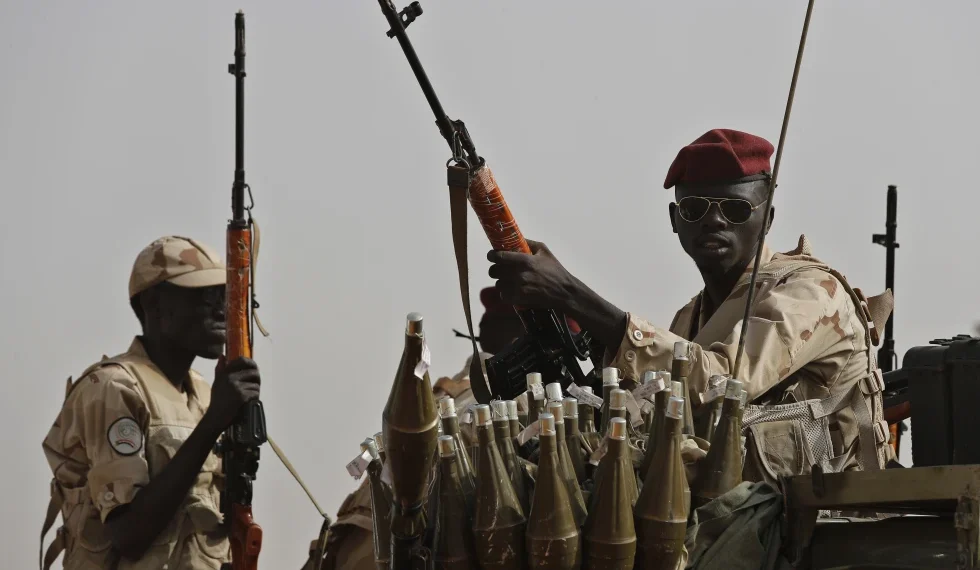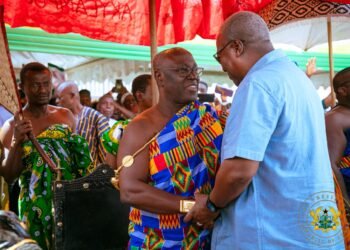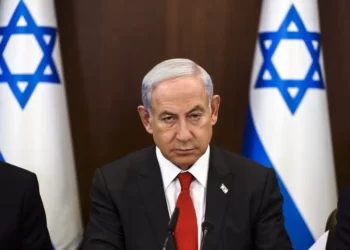Amnesty International has raised concerns over the presence of United Arab Emirates (UAE)-manufactured armored vehicles, equipped with French defense systems, being used in the Sudanese civil war.
The rights group’s report, released on November 14, asserted that these armored personnel carriers (APCs) were seized by the Sudanese Armed Forces (SAF) after being deployed by the paramilitary Rapid Support Forces (RSF).
Amnesty’s findings raised serious concerns about a potential breach of the United Nations arms embargo, which explicitly prohibits the transfer of weapons to Sudan.
The civil war, which erupted in April 2023 after rising tensions between the SAF and the RSF, has devastated the nation, claiming over 20,000 lives and displacing 11.6 million people, according to U.N. estimates. The war has left 8.3 million internally displaced, while 3.1 million have fled to neighboring countries.
“Our research shows that weaponry designed and manufactured in France is in active use on the battlefield in Sudan …The Galix System is being deployed by the RSF in this conflict, and any use in Darfur would be a clear breach of the U.N. arms embargo.”
Agnès Callamard, Secretary General of Amnesty International

Vehicles Equipped with French Defense Systems
Amnesty’s investigation identified several Nimr Ajban APCs on the ground in Sudan. These vehicles, reportedly manufactured by the UAE’s Edge Group, were seen in social media images verified by the organization.
The APCs are said to be outfitted with the Galix reactive defense system, produced in France by Lacroix Defense and KNDS France. The Galix system releases projectiles, smoke, and decoys to shield vehicles from imminent threats.
“The French government must ensure that Lacroix Defense and KNDS France immediately stop the supply of this system to the UAE,” Callamard stated, urging action in light of the findings.
UAE Denies Supplying RSF with Weapons
The UAE government has refuted accusations of supplying arms to the RSF, branding the claims as part of a “coordinated disinformation campaign” targeting its foreign policy and humanitarian initiatives.
In an emailed statement, a spokesperson said, “It is both outrageous and unacceptable that the SAF representatives continue to level accusations against the UAE, alleging our involvement in the ongoing conflict.” The UAE maintains that it has only engaged in humanitarian efforts to assist the Sudanese population.
The UAE also emphasized that it had informed the U.N. Security Council and other international partners of its non-involvement in providing support to “any of the belligerent warring parties in Sudan.”
U.S. Sanctions and RSF Supply Lines
The controversy comes on the heels of recent U.S. sanctions imposed on Algoney Hamdan Daglo Musa, a high-ranking RSF leader and the brother of the paramilitary’s commander Mohamed Hamdan Daglo.
The U.S. Treasury accused Algoney of spearheading efforts to supply arms during the ongoing conflict. He controls Tradive General Trading LLC, a UAE-based company implicated in importing and retrofitting vehicles for the RSF.
Amnesty’s report highlights a complex web of military supplies and international regulations, shedding light on the far-reaching implications of such transfers. “The presence of these advanced defense systems on the ground signifies more than just a violation—it signals an urgent need for accountability,” Callamard noted.
As the Sudanese conflict rages on, questions about international arms agreements and enforcement loom large. The humanitarian crisis, underscored by mass displacement and extensive casualties, has intensified the urgency for clearer, enforceable arms controls and accountability measures.
READ ALSO: Selena Gomez Cheers Benny Blanco’s ‘Sexiest Man Alive’ Honour




















